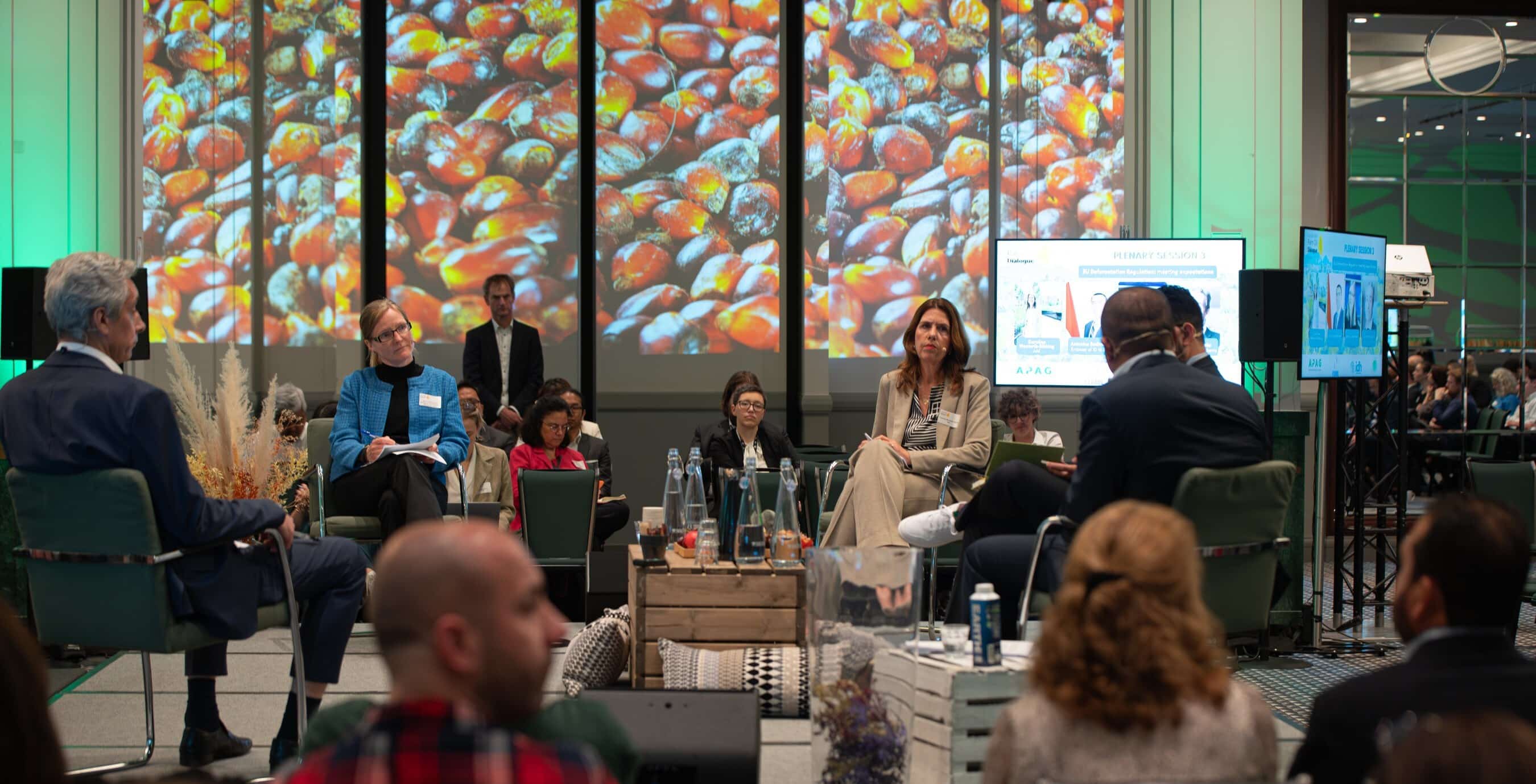Key Takeaways
- The Sustainable Palm Oil Dialogue (SPOD) 2024 Europe brought together key stakeholders to discuss sustainability in the palm oil sector.
- The event focused on addressing climate impacts and exploring solutions, with significant discussions on the European Union Deforestation Regulation (EUDR).
- Emphasis was placed on inclusive and regenerative business practices for sustainable agricultural systems.
- Stakeholders acknowledged the progress made by the private sector and the need for continued collaboration to meet regulatory standards.
- Concerns were raised about the potential exclusion of smallholders due to compliance challenges.
SPOD 2024 Europe: Advancing Sustainability in the Palm Oil Sector
The Sustainable Palm Oil Dialogue (SPOD) 2024 Europe successfully convened stakeholders committed to advancing sustainability in the palm oil sector, including representatives from the European Commission and the Indonesian Government. Organized by APAG Oleochemicals Europe, the EU Vegetable Oil and Proteinmeal Industry (FEDIOL), IDH, and the Roundtable on Sustainable Palm Oil (RSPO), this year's event focused on addressing the climate impacts caused by the palm oil sector and exploring effective solutions.
Held under the theme, “Inclusive Pathways for Climate-smart Solutions,” the dialogue featured prominent speakers who discussed multifaceted approaches for voluntary and mandatory initiatives to combat climate change and enhance the sector's overall positive impact.
Key Discussions and Panels During SPOD
A significant panel discussion titled “Meeting EUDR Expectations” included Andrew Brooks from Olam Food Ingredients, Astrid Ladefoged from DG Environment at the European Commission, Caroline Westerik-Sikking from AAK, and Antonius A. Budiman from the Embassy of the Indonesian Republic to the EU, moderated by Ruben Brunsveld from RSPO. This panel explored the expectations and implications of the European Union Deforestation Regulation (EUDR).
In her keynote address, Minou Schillings, Regenerative Business Facilitator and Community Weaver from The Green Sprint, emphasized the importance of regenerative business practices. “Inclusive pathways can only be realized through diversity: in agriculture, in perspectives, in leadership styles and narratives, in people, in landscapes, ecosystems and all living beings,” Schillings stated.
Progress and Challenges
The discussion on the EUDR highlighted the decades of work by the private sector that have laid the foundation for the new legislation. Astrid Ladefoged, Head of Unit for Planetary Common Goods, Universal Values and Environmental Security at DG Environment of the European Commission, acknowledged the private sector's efforts during SPOD. “We need to continue to work with the front-runners and help the rest catch up to such standards,” she said. Ladefoged noted the remaining challenges, particularly in improving traceability, but expressed optimism about meeting the implementation timeline.
Inclusivity and Smallholders
One of the key concerns raised during the dialogue was the potential exclusion of smallholders who have adopted sustainable practices but face difficulties in demonstrating compliance due to administrative barriers. Ladefoged stressed the importance of due diligence and the role of voluntary certification schemes in the risk assessment process. “Due diligence is not an exercise where you can tick off points on a list,” she remarked.
Image provided by SPOD


